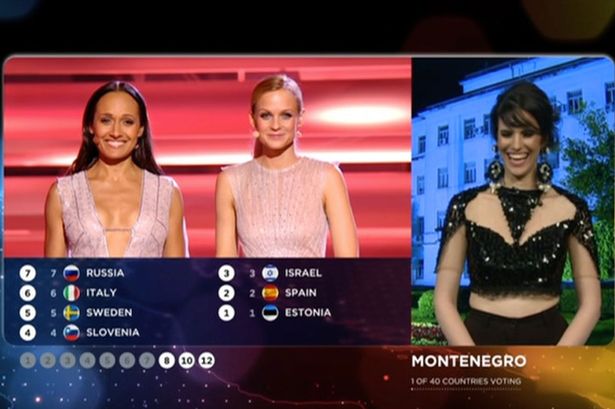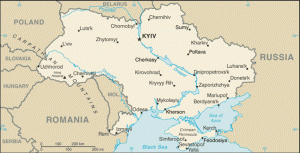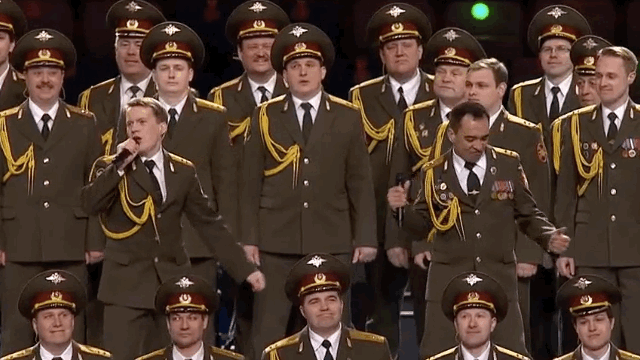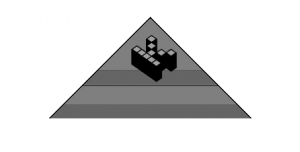 While not aiming to trivialize ongoing conflicts elsewhere in the world, I couldn’t help but make a connection between the above article and a video making the rounds of social media, in which the University of Tennessee’s football coach sniffs out the source of the song “Sweet Home Alabama” playing while his team practices — a song much associated with one of his team’s arch rivals (which, yes, happens to be where I work). Continue reading ““Why would we have that playing at Tennessee?””
While not aiming to trivialize ongoing conflicts elsewhere in the world, I couldn’t help but make a connection between the above article and a video making the rounds of social media, in which the University of Tennessee’s football coach sniffs out the source of the song “Sweet Home Alabama” playing while his team practices — a song much associated with one of his team’s arch rivals (which, yes, happens to be where I work). Continue reading ““Why would we have that playing at Tennessee?””
And Our 12 Points Go To…
 Like Wimbledon, I watch the Eurovision finals each year — we started doing it a few years ago. I was in Greece during the finals back in 2009 (“This is our night!”) and, since then, have gotten a kick out of the finals, especially the hour long voting ritual once all the songs have been performed, when local hosts, presumably from each country’s own telecast, “call” into the host city to reveal who their country voted for. That the awkward time delays in almost all of these reports makes it seem like a 1970s interview from halfway around the world, coupled with the fact that each country’s local host presumably wants to get as much as they can from their 30 seconds on air with the estimated 180 million viewers worldwide, while the event’s hosts back at the venue squirm on-air because they just want to hear their votes so they can speed things along, makes it all the better. Continue reading “And Our 12 Points Go To…”
Like Wimbledon, I watch the Eurovision finals each year — we started doing it a few years ago. I was in Greece during the finals back in 2009 (“This is our night!”) and, since then, have gotten a kick out of the finals, especially the hour long voting ritual once all the songs have been performed, when local hosts, presumably from each country’s own telecast, “call” into the host city to reveal who their country voted for. That the awkward time delays in almost all of these reports makes it seem like a 1970s interview from halfway around the world, coupled with the fact that each country’s local host presumably wants to get as much as they can from their 30 seconds on air with the estimated 180 million viewers worldwide, while the event’s hosts back at the venue squirm on-air because they just want to hear their votes so they can speed things along, makes it all the better. Continue reading “And Our 12 Points Go To…”
What Do We Do With Ukraine?

My colleagues and I at Culture on the Edge have argued that historical narratives, labels of identification, and sociological analysis often reflect the interests and assumptions of those producing the assertions rather than simple description. When our assertions focus on furniture advertising, analysis of the Nones or interpretations of frescoes, such assertions may seem benign. How do these analytical approaches operate when facing an international crisis such as recent events in Ukraine? Continue reading “What Do We Do With Ukraine?”
Get Lucky
 We here at the Edge are hoping that you’re enjoying the Winter Olympics — whether for the figure skating commentators’ never-ending search for new ways to describe the indescribable (“he lacked luster and sizzle”) or the unbridled celebration of nationalism. Speaking for myself, I still can’t get beyond the toe-tapping, head-nodding human drama of the opening ceremonies.
We here at the Edge are hoping that you’re enjoying the Winter Olympics — whether for the figure skating commentators’ never-ending search for new ways to describe the indescribable (“he lacked luster and sizzle”) or the unbridled celebration of nationalism. Speaking for myself, I still can’t get beyond the toe-tapping, head-nodding human drama of the opening ceremonies.
Come On Baby, Light My Fire
 Did you hear about the Olympic torch going into space the other day?
Did you hear about the Olympic torch going into space the other day?
No flame; just the torch.
Not content to just light it in Greece or with the usual spectacle of running it to wherever it is being hosted that year (a relay started when Nazi Germany hosted the 1936 summer Olympics, by the way), the Russians not only took it into space (yawn: the third time this has happened) but out on a space walk as well — a first! Continue reading “Come On Baby, Light My Fire”
Strategic Religion
 People involved in Kopimi, a movement promoting the free exchange of information and file sharing over the web (in opposition to anti-piracy and copyright regulations), have begun the process of registering as a religion in Russia. Their strategy is to use the special protections in Russia for religious sentiments (which recently went into effect following the Pussy Riot episode last year) to challenge anti-piracy regulations. Their argument is that the anti-piracy laws contradict their belief that “the process of exchanging data is sacred.” This is not the first time the Kopimi movement has worked to become a religion, as it is recognized in Sweden as Kopimistsamfundet. Continue reading “Strategic Religion”
People involved in Kopimi, a movement promoting the free exchange of information and file sharing over the web (in opposition to anti-piracy and copyright regulations), have begun the process of registering as a religion in Russia. Their strategy is to use the special protections in Russia for religious sentiments (which recently went into effect following the Pussy Riot episode last year) to challenge anti-piracy regulations. Their argument is that the anti-piracy laws contradict their belief that “the process of exchanging data is sacred.” This is not the first time the Kopimi movement has worked to become a religion, as it is recognized in Sweden as Kopimistsamfundet. Continue reading “Strategic Religion”
